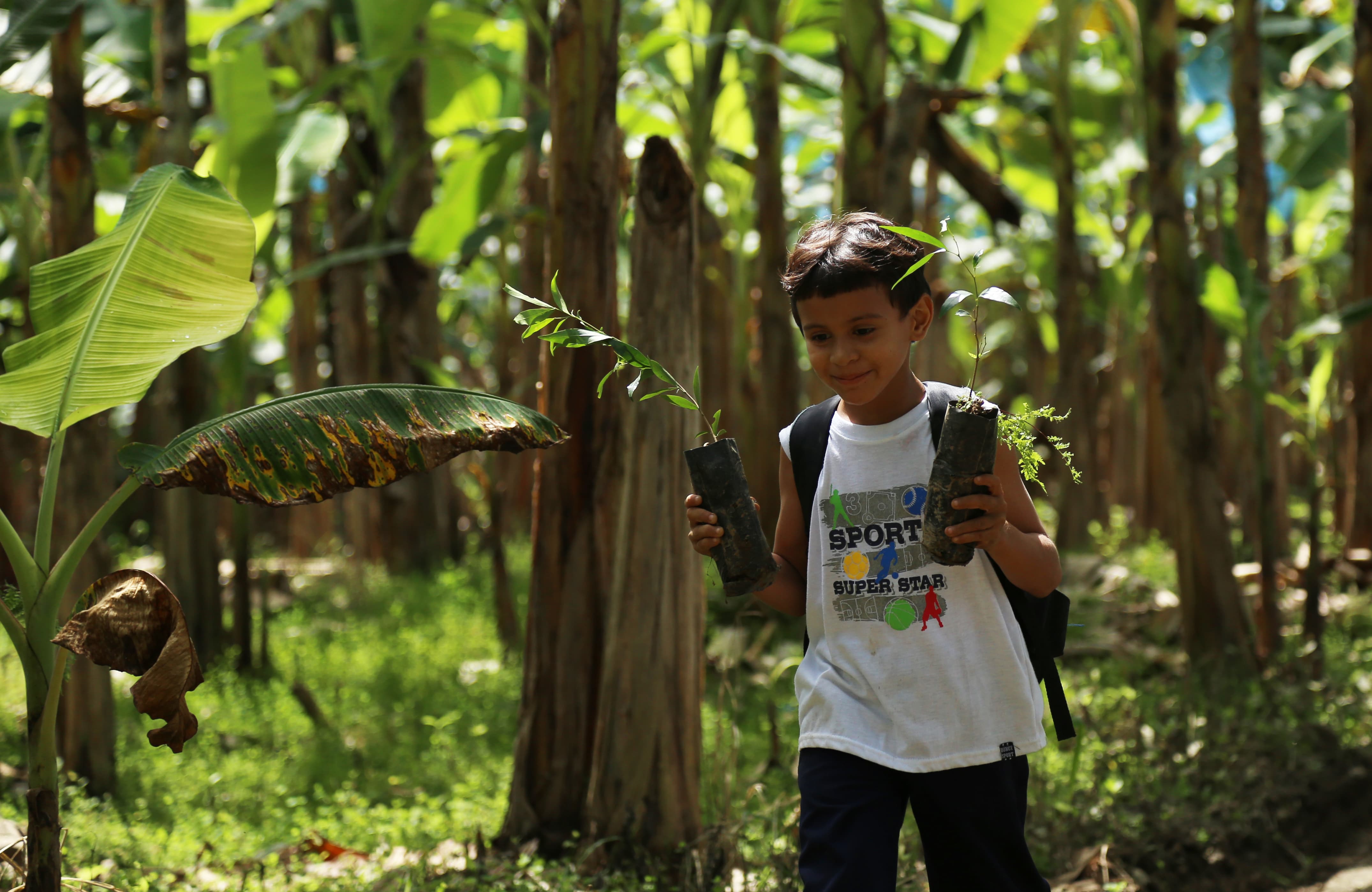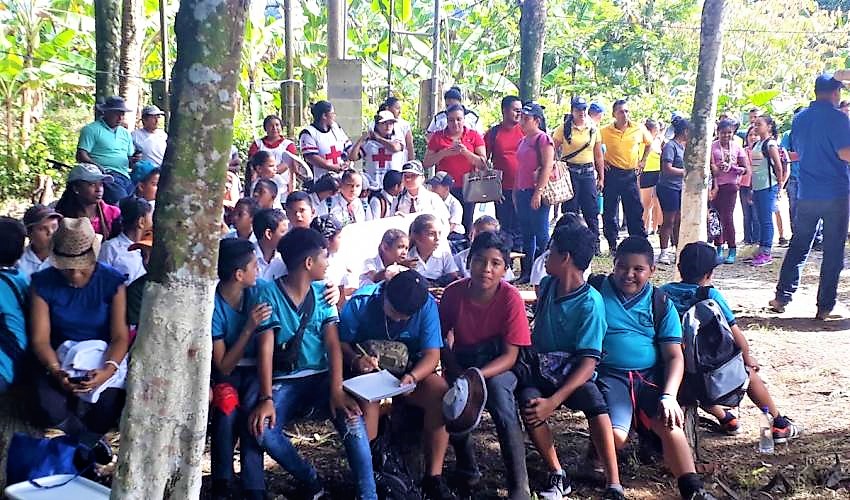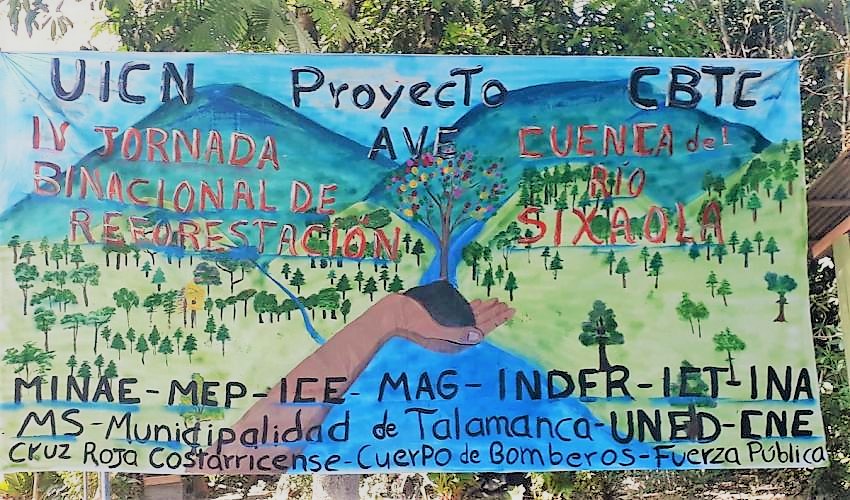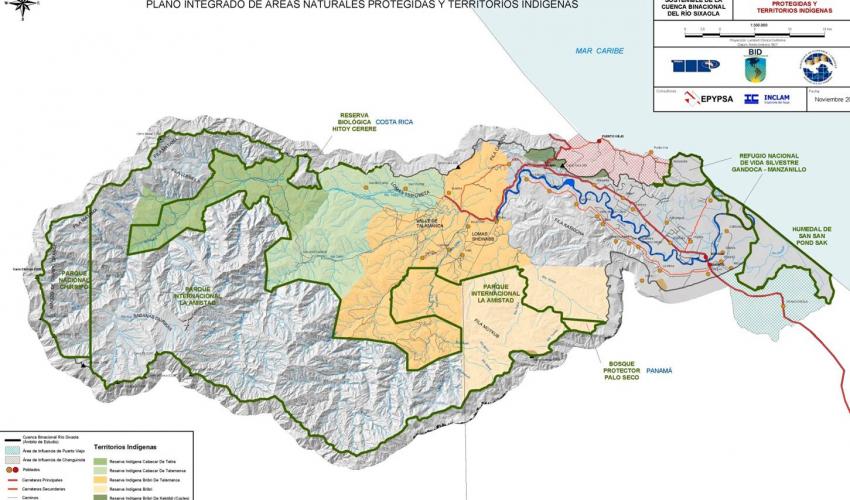The ecosystem approach into practice
Reforestation Day with local school kids / Reforestación involucrando a escolares
IUCN @ Paula Cruz
Reforestation Day with local school kids /Reforestación involucrando a escolares
IUCN @ Elías Cruz
Banner of the IV Binational Reforestation Journey / IV Jornada Binacional de Reforestación
IUCN @ Elías Cruz
Map of the Sixaola Binational River Basin / Mapa cuenca del Río Sixaola (Costa Rica-Panamá)
IUCN
Under an ecosystem approach, efforts seek to improve the livelihoods and resilience of ecosystems in order to reduce the vulnerability of local communities to the challenges of erratic rains, changing pf seasons, storms and consequent loss of crops. The EbA measures promoted are:
- Restoration of riverbank forests to prevent river bank erosion during extreme storms and flash floods. This is promoted with annual Binational Reforestation Days and guided by a Restoration Opportunities study in river banks.
- Agrodiversification was undertaken with local farmers to increase the number and varieties of crop species, fruit and wood trees in their plots, while combining with animals. This aim to improve the resilience of the system against erratic rainfall and changing seasonal patterns. The model is locally named as "integral farms".
- Learning and exchange through a network of resilient farmers with knowledge on EbA.
- Organization of agrobiodiversity fairs for the promotion and rescue of endemic seeds.
The model used a "learning by doing" approach and the adoption of iterative decisions that identify short-term strategies in light of long-term uncertainties. Learning and evaluation allows new information to be considered and inform policies at different levels.
- Climate change and, in particular, changes in rainfall patterns, are factors that concern many basin stakeholders, which increases their willingness to prioritize actions that favour water and food security. As a result, many farmers agreed to incorporate sustainable agricultural practices in their farms, taking full ownership of them.
- The integral farms model facilitates understanding of the value of ecosystem services and helps to substantiate governance with an ecosystem approach.
- When promoting dialogues on EbA, traditional and indigenous knowledge and experiences concerning climate variability and natural resources must be taken into account. This not only favours coherency in the selection of EbA measures, but also allows elements to be captured that can inform the actions of agricultural extension agencies in the basin and enrich national and regional policies.
- Indigenous knowledge is fundamental when it comes to knowing which seeds and crop varieties are best adapted to the socio-ecological context. Organization of agrobiodiversity fairs for the exchange and preservation of endemic species seeds intended to enhance the planting of native species. Some are more resilient against climate related stressors; a diverse farm enable and agro-ecosystems turns into protecting communities from negative impacts of climate change, providing food security.
- The reforestation events proved to be highly valuable activities. This type of action leaves an indelible mark on children and youth, and motivates them to replicate the activity in the future.




